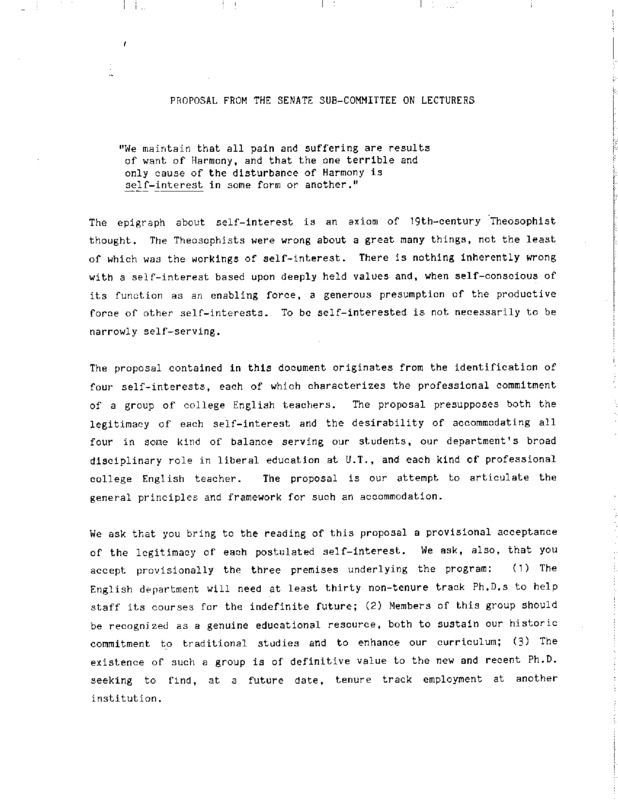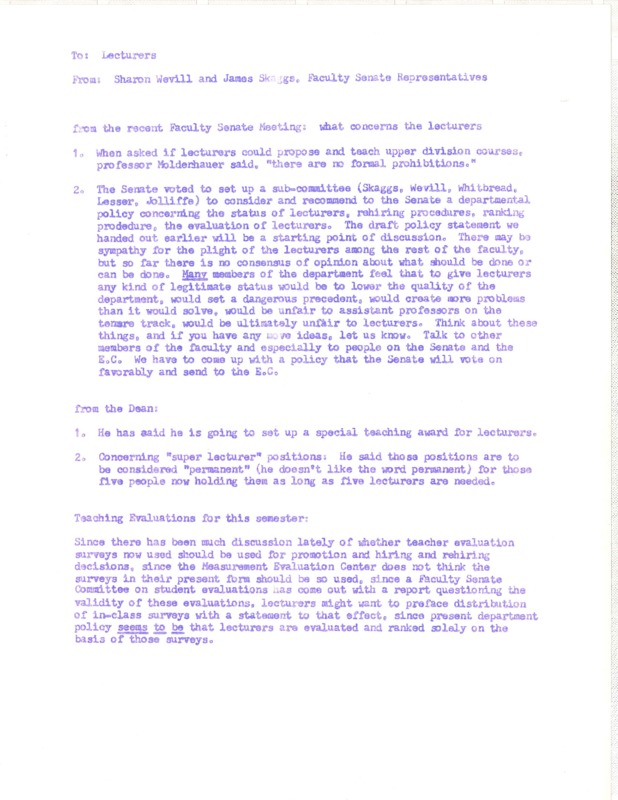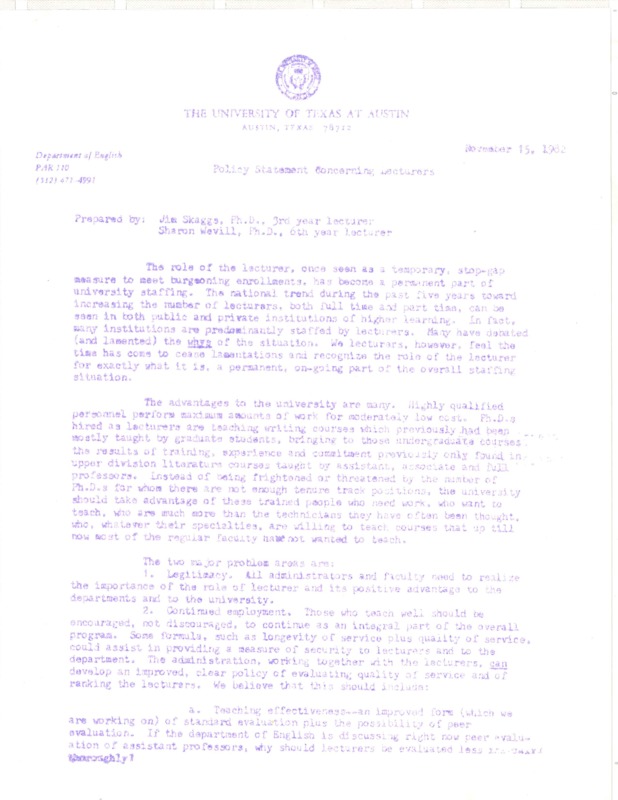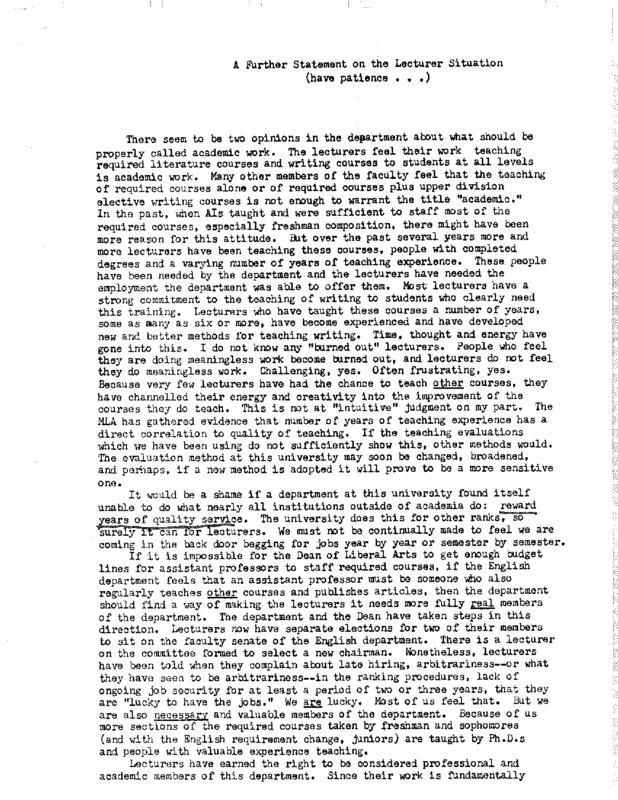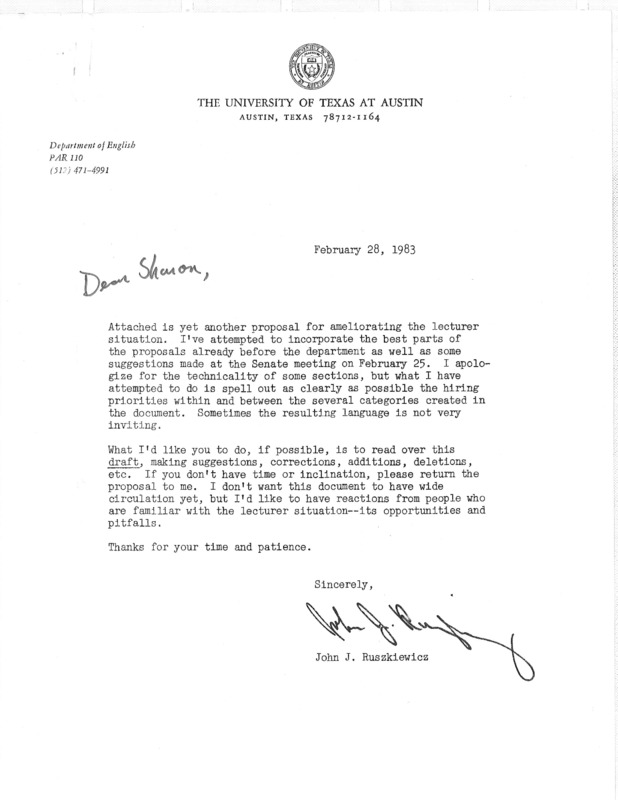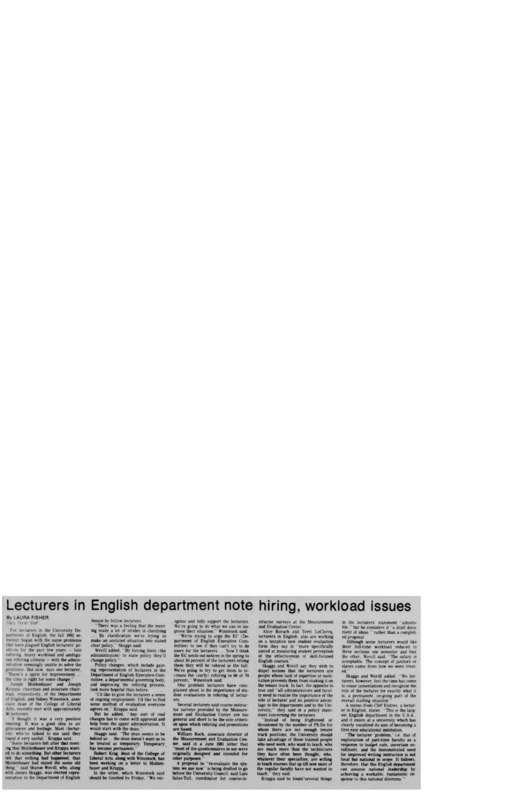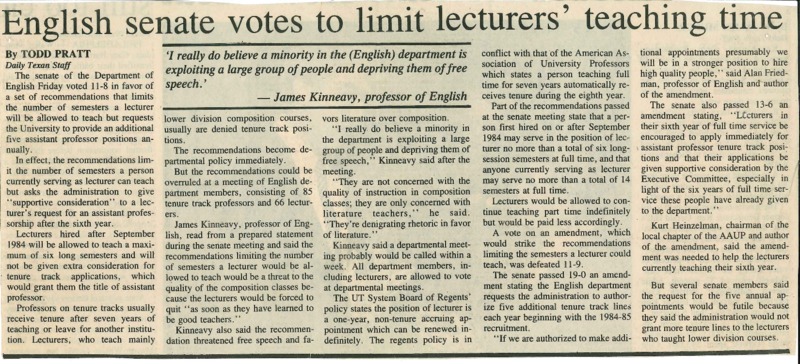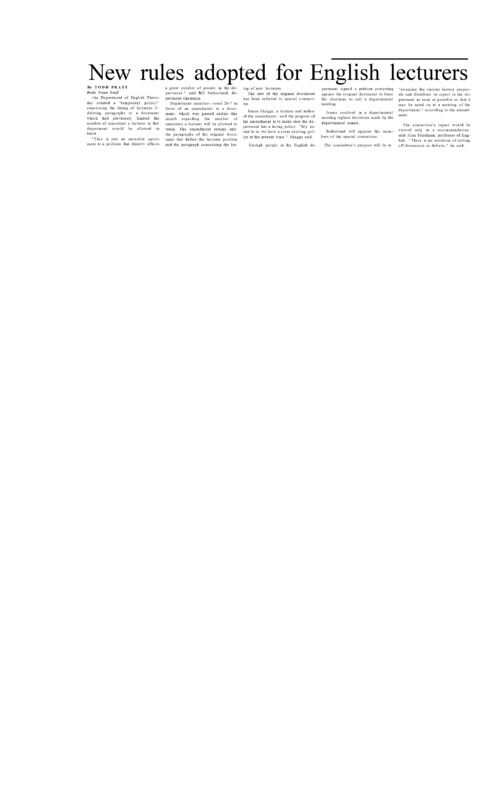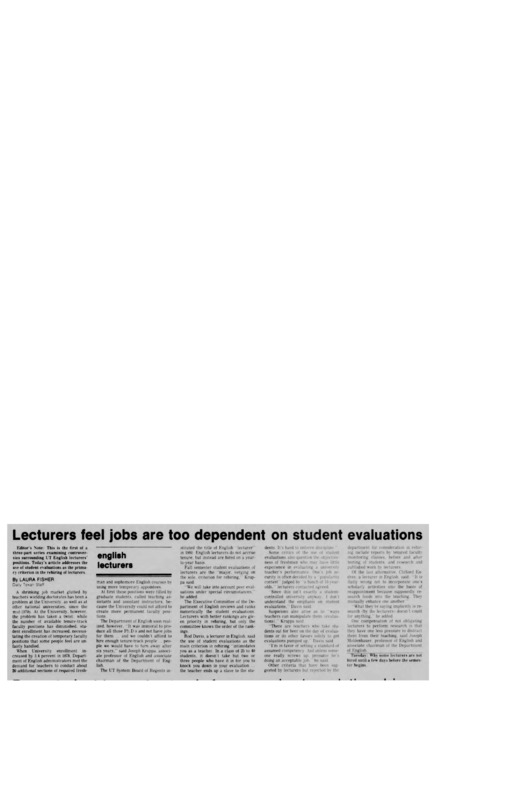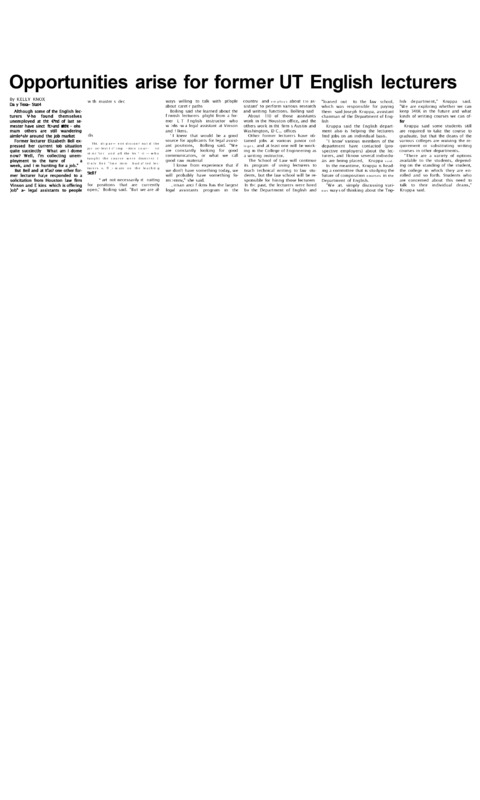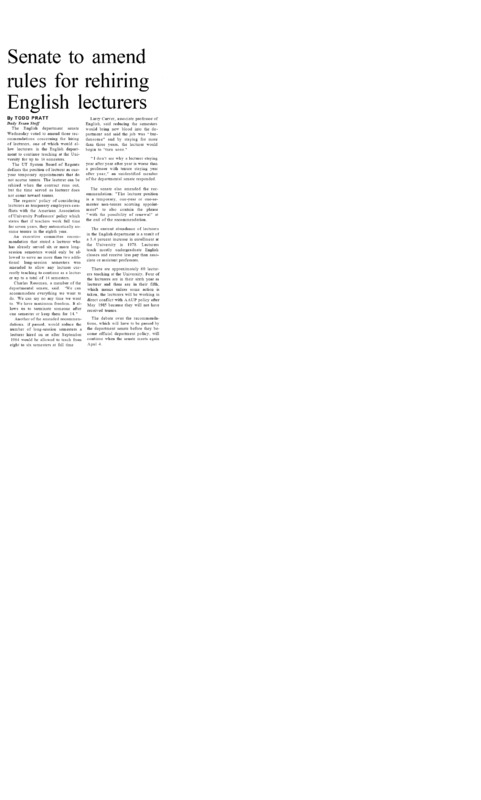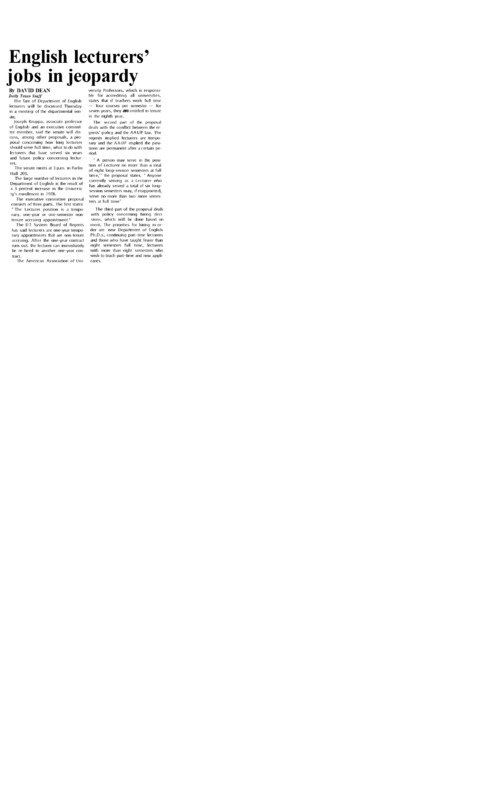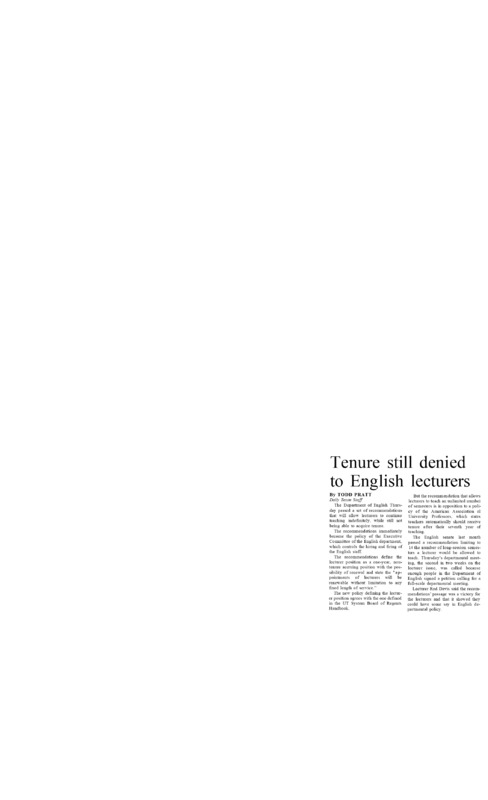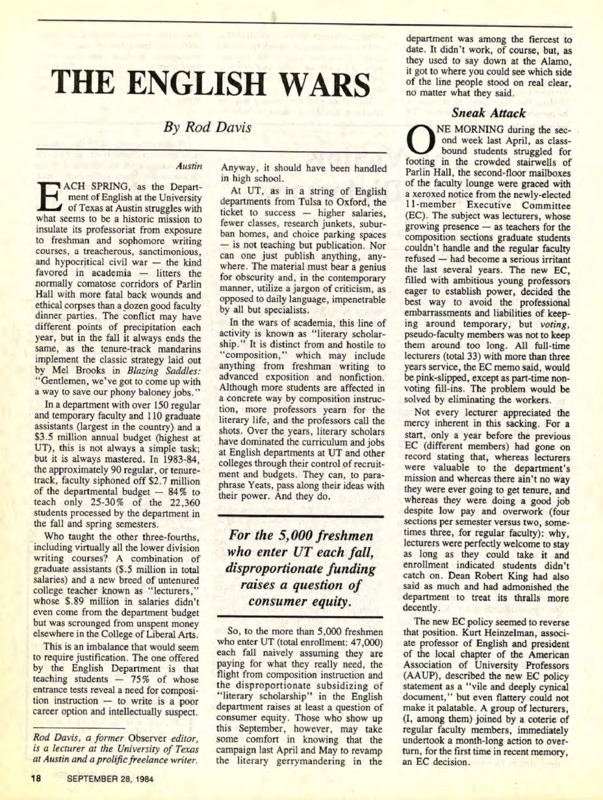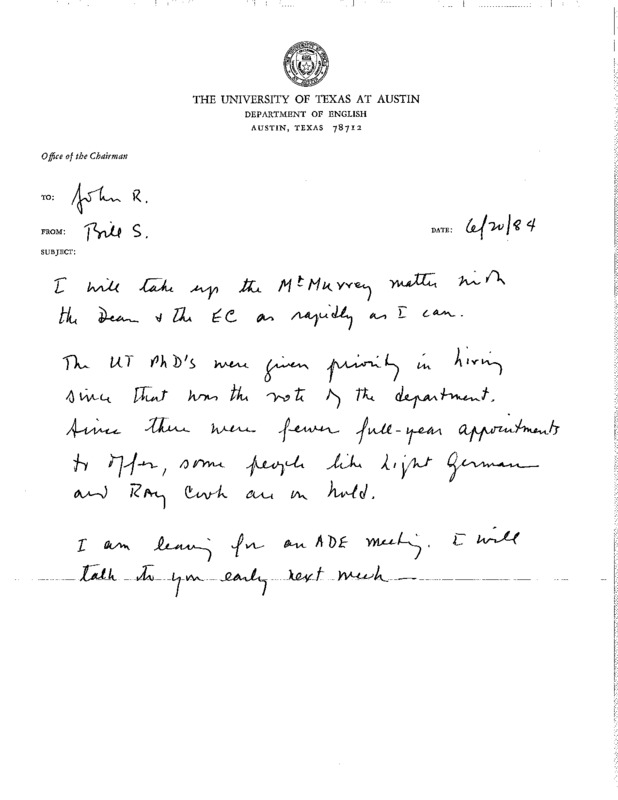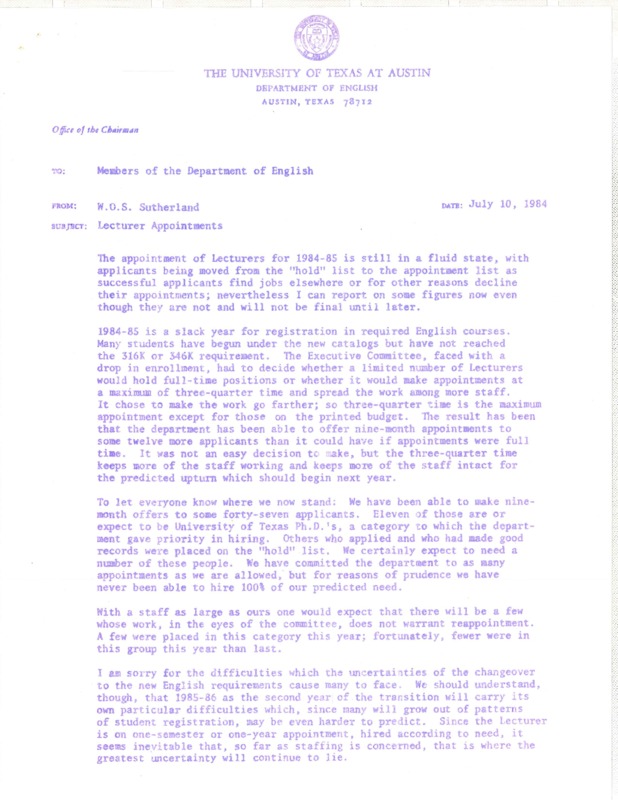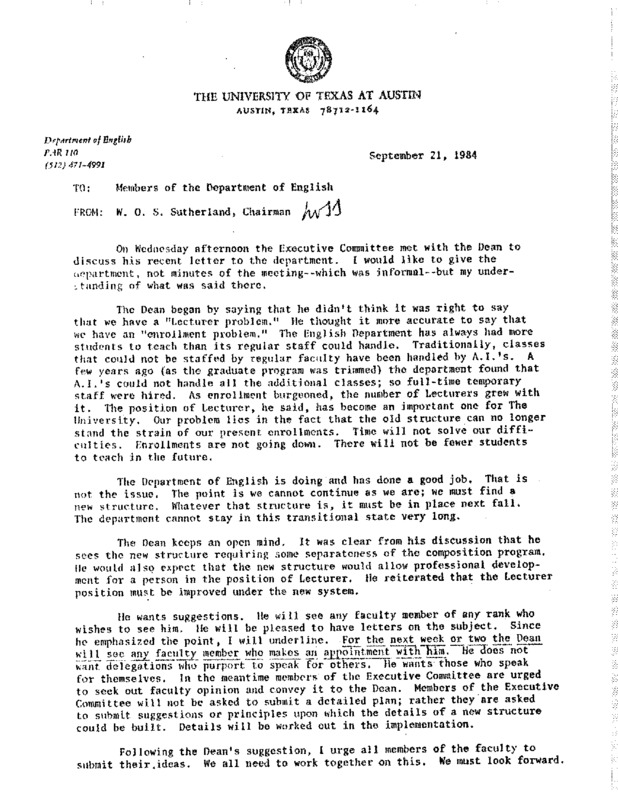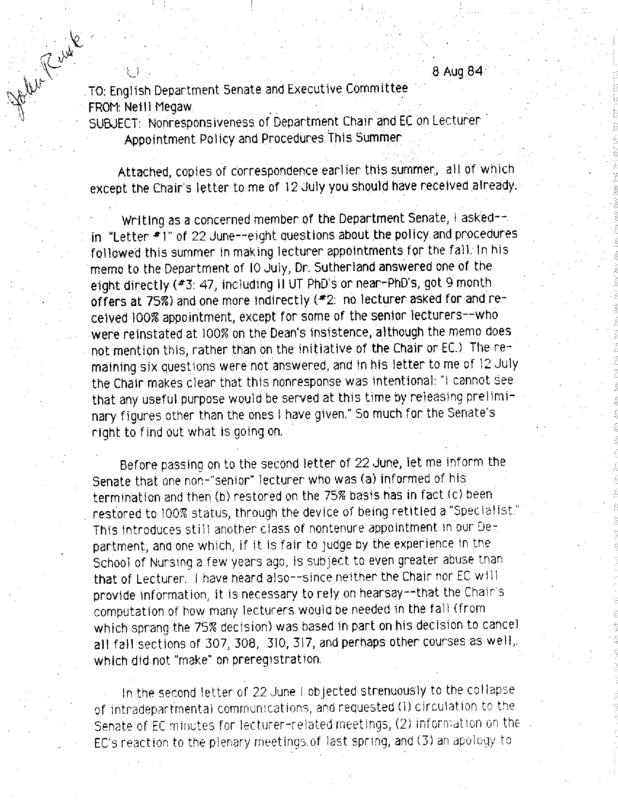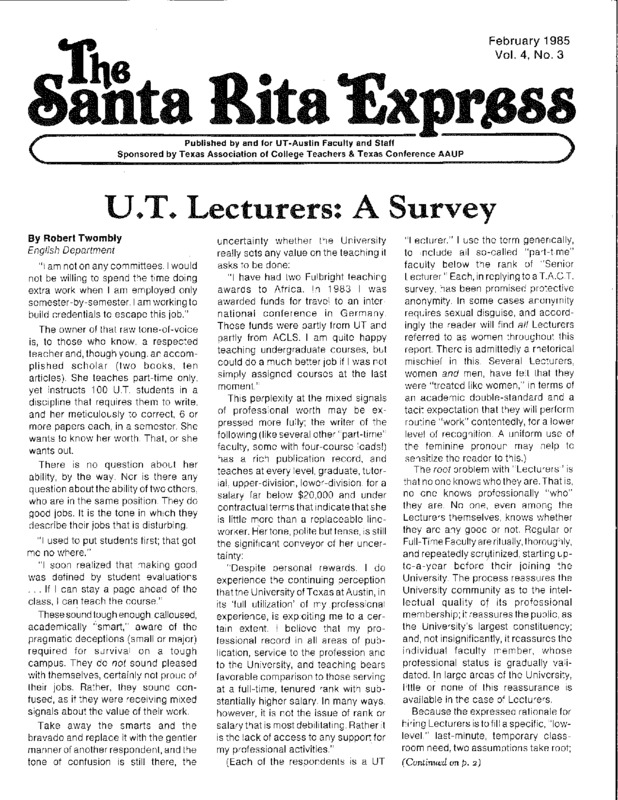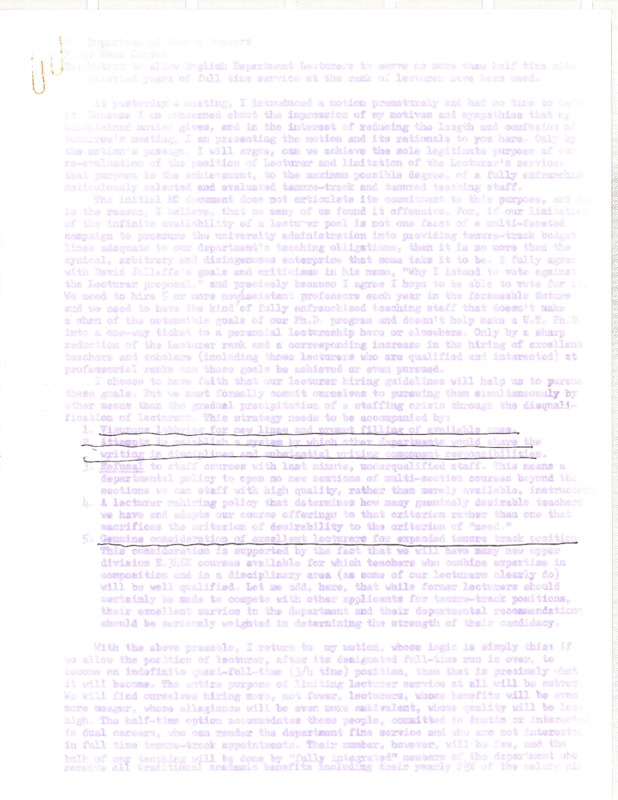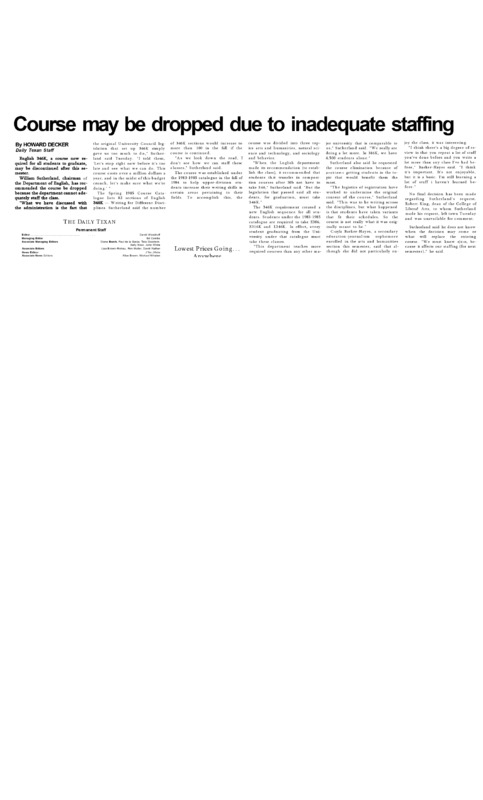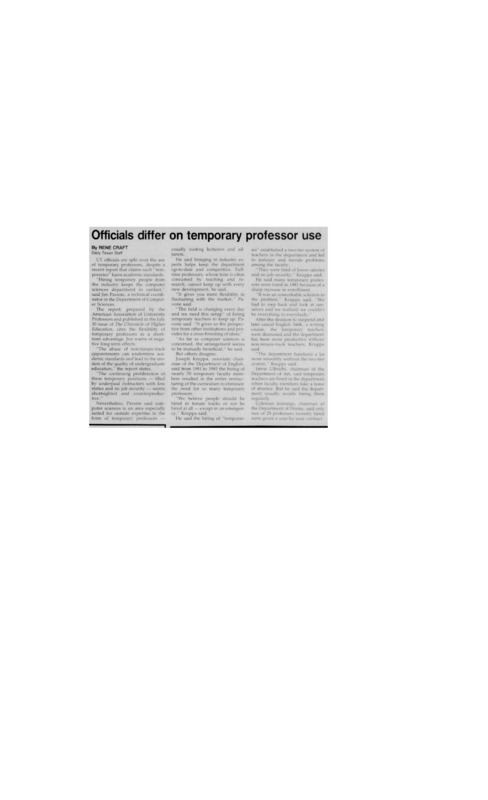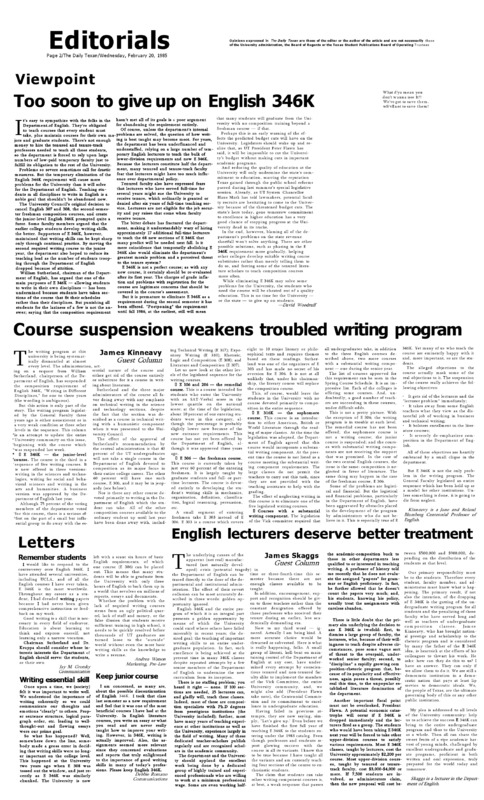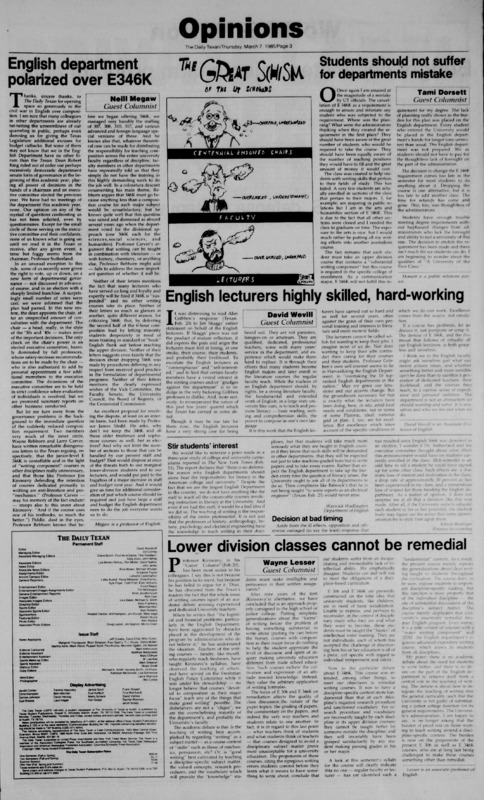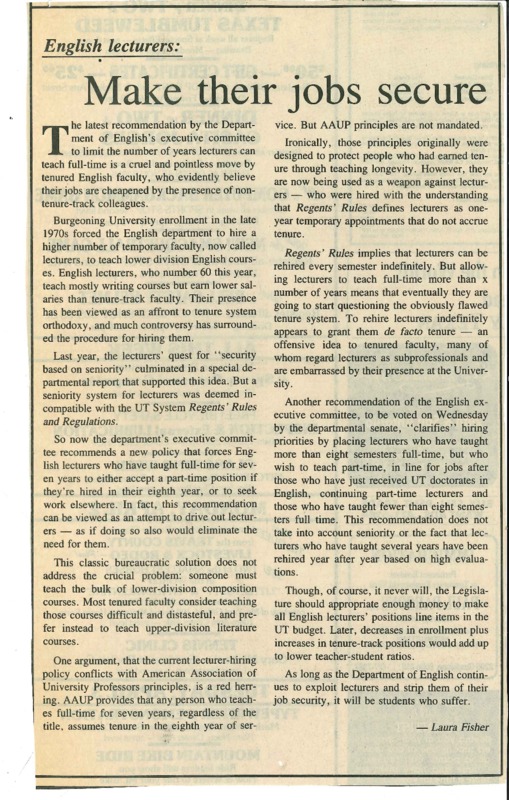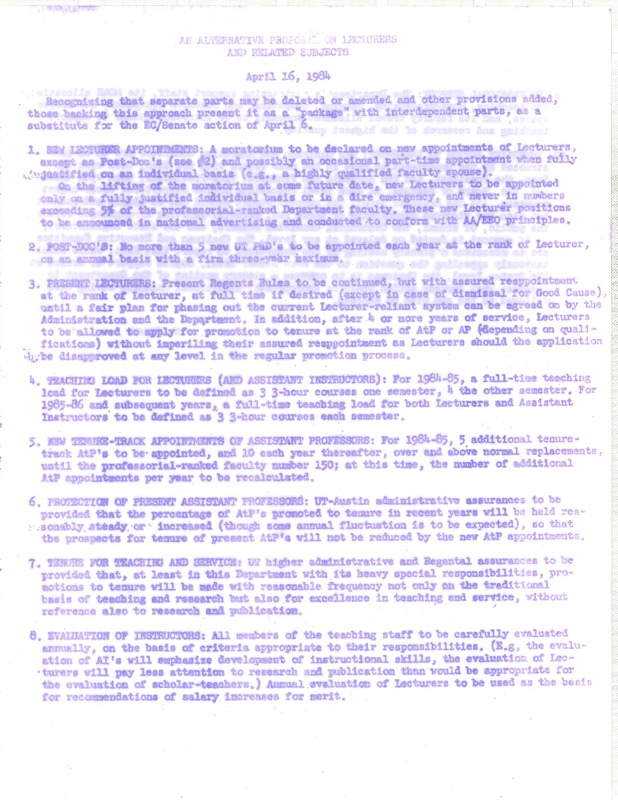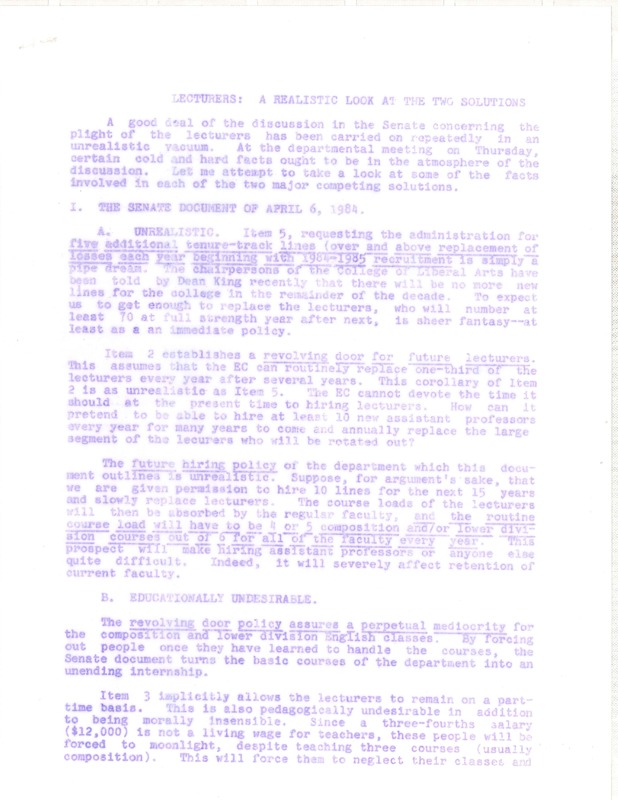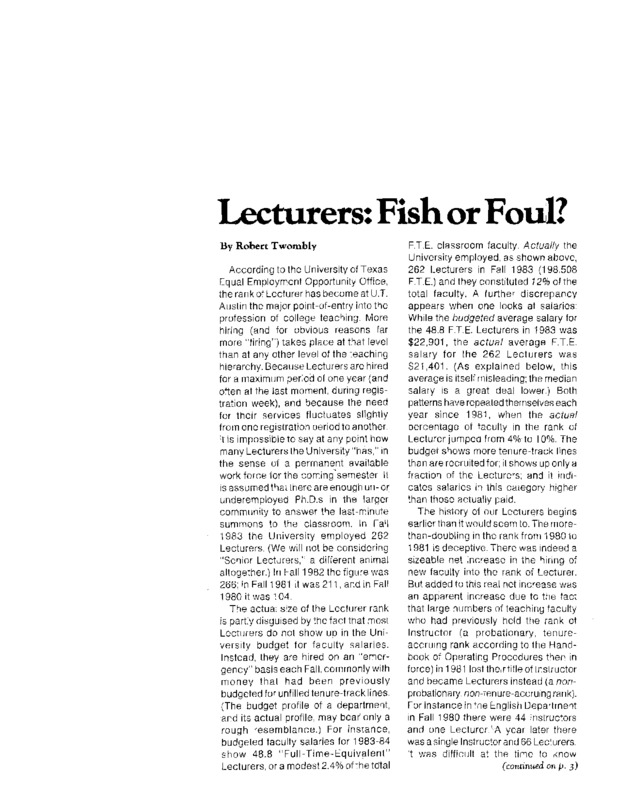The Lecturer Controversy

In the late 1970s and early 1980s, several factors created a labor crisis in the UT English Department: First, a public-media scandal prompted the university to reduce its reliance upon graduate teaching assistants, especially in first-year courses. Second, departments across the university reduced faculty teaching loads from three to two courses per semester, allowing greater attention on research. Third, an enrollment boom brought record numbers of students into the university, putting particular pressure on the two required English courses (RHE 306 and RHE 307/317/314).
The burden of teaching lower-division writing courses fell on a growing body of non tenure-track faculty, initially hired at Dean Robert King’s direction. King’s initial hire of eight lecturers in 1981 soon grew to nearly 50 (in 1984), creating the “lecturer problem”: How to manage a faculty divided between tenure-track research faculty who enjoyed job stability while teaching two courses per semester and non tenure-track faculty who taught four courses per semester and whose contracts were renewed on a year-to-year basis? How to allow non tenure-track faculty a say in faculty governance? How to ensure quality instruction in lower-division classes staffed by a range of people with a variety of backgrounds?
Things came to a head in 1984/5 as the lecturers began to assert themselves, exercising their right to vote in general faculty meetings. Some tenured faculty sympathized with the lecturers’ situation; others did not. Ultimately, after many within the English department tried but failed to find a workable solution, the UT upper administration decided that the lecturer pool was not sustainable. In the spring of 1985, the university decided not to renew the contracts of nearly all of the lecturers. Now known as the “Saturday night massacre,” this massive layoff got covered in national news. The writing program at UT still refuses to staff its core requirements with non-tenure-track faculty.


